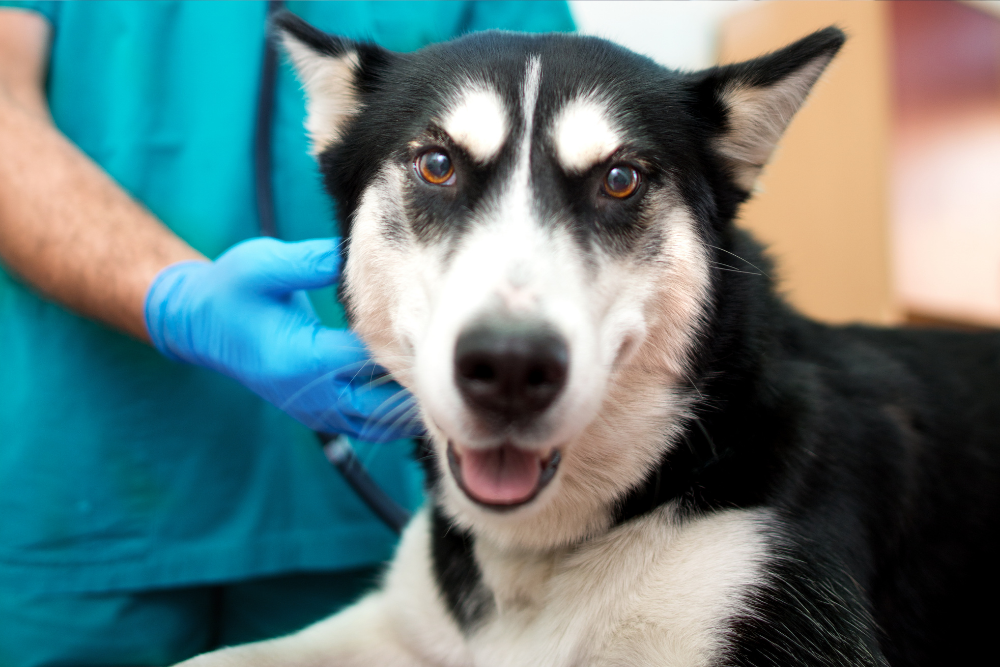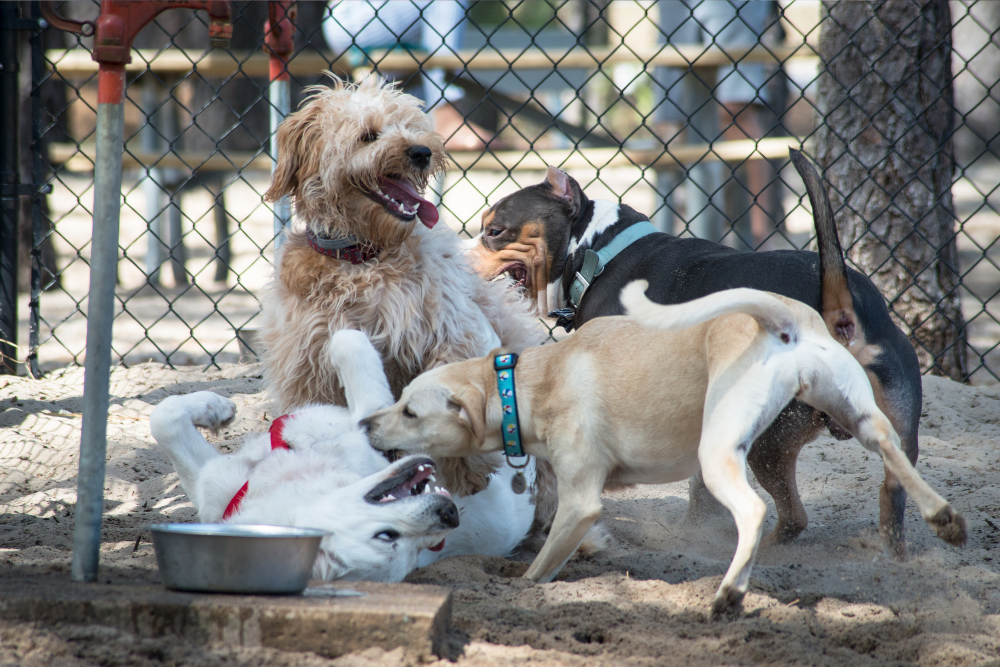What Vaccines Do Dogs Need Yearly?
Published January 20, 2022


Content Reviewed by an Essentials PetCare Veterinarian
You probably remember a whole round of shots, medications, and check-ups if you adopted your dog as a puppy, but what happens after those initial vaccinations? Does this continue year-to-year? Do you feel confused about what your dog really needs?
Below, we’ll clear up the basics about adult dog vaccination in general, boosters, and what costs and frequency to expect.
Should You Get Your Dog Vaccinated?
The short answer: yes. Regular vaccines greatly increase your dog’s protection against serious diseases—some deadly, like distemper. Remember, if your dog contracts an illness that a vaccine could have prevented, the cost of treatment is usually much higher than the cost of prevention.
Additionally, most states legally require the rabies vaccine. So you might incur fines if you fall behind on your dog’s rabies shots.
What can you expect to pay for your dog’s yearly shots?
It ranges from $75-150. The cost really depends on where you go and how many vaccines you need! For a full-service veterinarian, you’re looking at about $150, and there may be an additional examination fee, typically ranging between $30-60. Many full-service veterinary hospitals will offer a full range of vaccination options. They can provide comprehensive diagnostics for any issues that may be found on your pet’s physical exam. The cost can also vary by regional location and cost of living.
On the other hand, some shelters offer free vaccination shots – although you may need to work with their schedule and supply. You may also need to apply to be approved for any type of free program.
You can find a nice middle ground in low-cost or wellness clinics, which is where Essentials PetCare falls. With us, you’ll be able to pick and choose the best package for your pet. Our staff can help you decide, depending on what’s safest for your dog, what they may be at risk for, and what’s within your budget. We combine services to avoid additional fees, so care is more affordable to you.
Avoid an all-or-nothing attitude with vaccination. Giving your dog the shots you can afford at the time offers more protection than no vaccinations at all! At Essentials PetCare, our bundled packages can provide more vaccines at a lower cost than trying to spread them out individually, so your pet receives more protection.
Which Vaccination Shots Do Dogs Need Each Year?
Annual shots for adult dogs can be divided into two groups: core vaccinations and recommended (or non-core) vaccinations.
Core vaccinations for most dogs include:
- Rabies
- Canine parvovirus
- Distemper
- Canine hepatitis
Essentials PetCare offers the Essential Package, which covers all of these.
Non-core vaccinations that our doctors recommend are:
- Bordetella bronchiseptica
- Borrelia burgdorferi
- Leptospira bacteria
Why would your dog need a non-core vaccination?


This depends on lifestyle:
- If your dog attends doggie daycare
- If you travel often – and your dog stays in a boarding kennel
- If your dog frequents a dog park
- If your dog spends any amount of time outdoors
Usually, dog boarding facilities will specify the shots that dogs need before they’re allowed to stay there. Your veterinarian can also make recommendations for what is needed to keep you dog safest in these situations.
After initial puppy vaccinations, most of these subsequent shots for your dog are considered boosters. As such, these are generally administered less often, usually every 3 years. The exception is the non-core vaccines, which need to be administered at least once a year to remain effective. Missing a booster compromises the efficacy of the vaccination, so your pet needs boosters.
Is Titer Testing Worth It?
Titer testing determines the continuing immunity from a vaccination shot. For instance, one year after a distemper shot, you might get a titer test to see how many antibodies remain. Veterinarians may recommend titer testing in certain cases to verify a pet’s immunity. However, the test results are not always conclusive. Negative titer tests do not necessarily mean your pet is not protected.
You might wonder if this will help you draw out the time between boosters, but this is not really a wise approach. Why? Because overall, it’s less expensive to follow the regular booster schedule than to commit to regular titer testing.
How does that break down in real numbers? It’s about $90-180 for the whole round of booster shots versus $100-300 per titer test – each covers one disease. Testing for this annually becomes far more expensive than staying on a regular 3-year vaccination schedule, which is recommended by the American Animal Hospital Association for adult dogs that have completed their puppy series, followed by an initial booster one year later. Additionally, titers can only be performed for core vaccines, except for rabies.
Does My Elderly Dog Still Need Boosters?
Vaccinations start with a strong flush of antibodies and grow weaker over time. This is why we give dogs booster shots.
This need doesn’t change with age. If anything, your dog’s immune system may need the extra help to fend off illness, so give your furry old buddy all the protection you can! As previously stated, core vaccines can likely be given on an extended schedule, so your veterinarian will make the best recommendation for how often these are needed for your dog.
Do Vaccines Carry Risky Side Effects?
For the majority of dogs, vaccines generate mild symptoms. They are supposed to do this, because they lightly stimulate the immune system to create antibodies. These antibodies afford your dog protection from the real disease.
Mild symptoms could include a runny nose, fatigue, or fever. Your pup might also be a little sore in the spot where they injected the shot.
If you can, get your dog’s shots on a day when you can keep an eye on them, just in case of a rare adverse reaction. But overall, the experience is very similar to when a human gets vaccinated – nothing to fear!
Do Puppies Need Different Vaccines than Adult Dogs?
Your dog’s vaccination needs are most critical when they’re a puppy. They need a robust round of shots because their immune system is least protected at a young age. A series of vaccinations are administered to ensure that a proper immune response is stimulated at the same time that their natural antibodies received from the mother are waning.


The distemper/parvo vaccine series should begin at 8 weeks of age, followed by booster visits at 12 and 16 weeks of age. Following the puppy vaccine series, the pet should receive a booster every 1-3 years, depending upon the pet’s vaccine history.
The leptospirosis vaccine series should begin at 12 weeks of age, followed by a booster at 16 weeks of age. This vaccine will then be boostered annually. The canine influenza vaccine series is recommended if your pet visits public areas, like boarding and grooming facilities, and it can be administered on the same schedule as the leptospirosis vaccine series.
Bordetella and rabies vaccines should be administered when the pet is 16 weeks of age. The bordetella vaccine should be boostered annually, and the rabies vaccine must be administered every 1-3 years, depending upon the pet’s vaccine history.
Lab Testing
Veterinarians recommend at least 2 intestinal parasite tests during the puppy vaccine series, with at least 1 test annually after that.
Heartworm testing can begin when a puppy is 7 months old. After the initial heartworm test, the puppy should receive another heartworm test in 6 months. After that, dogs should receive a heartworm test at least once a year. It’s important for dogs to receive consistent heartworm prevention.
Comprehensive lab testing, including bloodwork and a urinalysis, is recommended for all dogs 7 years and older. If a dog is gaining weight, has a dull coat, or is lethargic, adding a thyroid test is recommended.
Essential Tip: Essentials PetCare vaccine packages always come with a doctor’s exam and preventative medication prescriptions unless otherwise noted.
Prices subject to change. See current prices: https://essentialspetcare.com/services.



